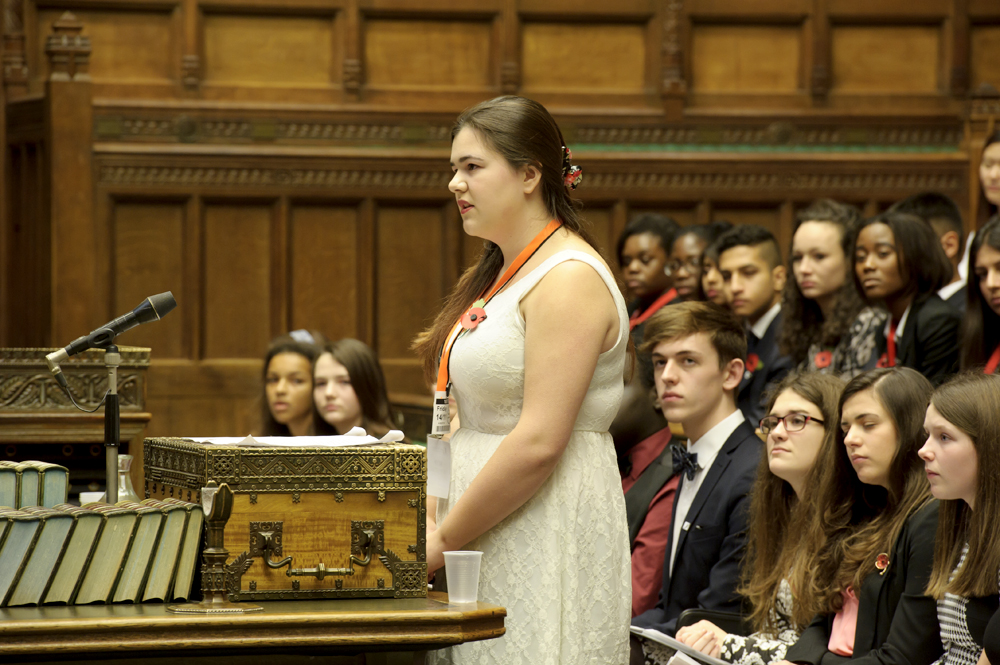
Image from Flickr user UK Parliament via Creative Commons
Our latest briefing focuses on the involvement of young people in political processes and decision-making. You can download the briefing for free from the Knowledge Exchange publications page.
While the media was focused on young people’s participation in politics at the national level during the recent General Election campaign, in this briefing we take a step back and look at the involvement of young people in local political processes and decision-making.
Research by the IPPR in 2013 found that alongside those from lower socioeconomic backgrounds, young people are the group least likely to vote at elections. At the local level, research by the National Centre for Social Research for the Joseph Rowntree Foundation has found that young voters are even less likely to turn out for local (and European) elections.
Our briefing highlights a range of reasons suggested by existing evidence as to why young people have low levels of engagement with political systems and decision-making. These include:
- A lack of trust in politicians and their parties.
- A focus on policies that do not directly impact on their lives.
- Today’s generation of young people do not see voting as a civic duty.
Also highlighted are the reasons why it is so important that more is done to encourage young people to engage with political and decision-making processes. These range from legal factors (children and young people have the legal right to have a say in all matters that affect them, according to Article 12 of the United Nations Convention on the Rights of the Child) to examples of positive contributions that children and young people have made in the shaping of local services.
The briefing includes advice on how organisations including councils can help to encourage and facilitate young people to become more involved in formal decision-making processes. This includes tips on practical considerations (e.g. venues, timing of meetings), safeguarding issues and how best to communicate with young people.
A number of examples of good practice are identified, including Dorset County Council’s Youth Inspectors scheme. Established in 2009, the project aims to enable young people to learn about and influence local services in their area.
The Knowledge Exchange specialises in public and social policy. To gain an insight into the commentary it offers, please explore our publications page on the Knowledge Exchange website.
To find out more on how to become a member, contact us.
Share
Related Posts
Tackling geographical inequalities is critical for ensuring that all parts of the country have the potential to prosper. When the UK was a member of the European Union, it was entitled to a share of funding from the EU’s structural ....
In recent years, there has been an increasing focus on ensuring people with ‘lived experience’ are involved in co-producing research and policy-making at practical, local level. However, there has been little discussion around what the people with lived experience themselves ....
By Robert Kelk and Chris Drake A new start for an old challenge? The recent appointment of Marc Lemaître as the European Commission’s director general for research and innovation (R&I) has returned Europe’s R&I gap to the spotlight. Previously head ....
Today sees the start of Community Garden Week 2023. Across the UK, communities will be celebrating the many and varied types of community gardens, from children’s and neighbourhood gardens to therapy gardens and allotments. The benefits of community gardens are ....
